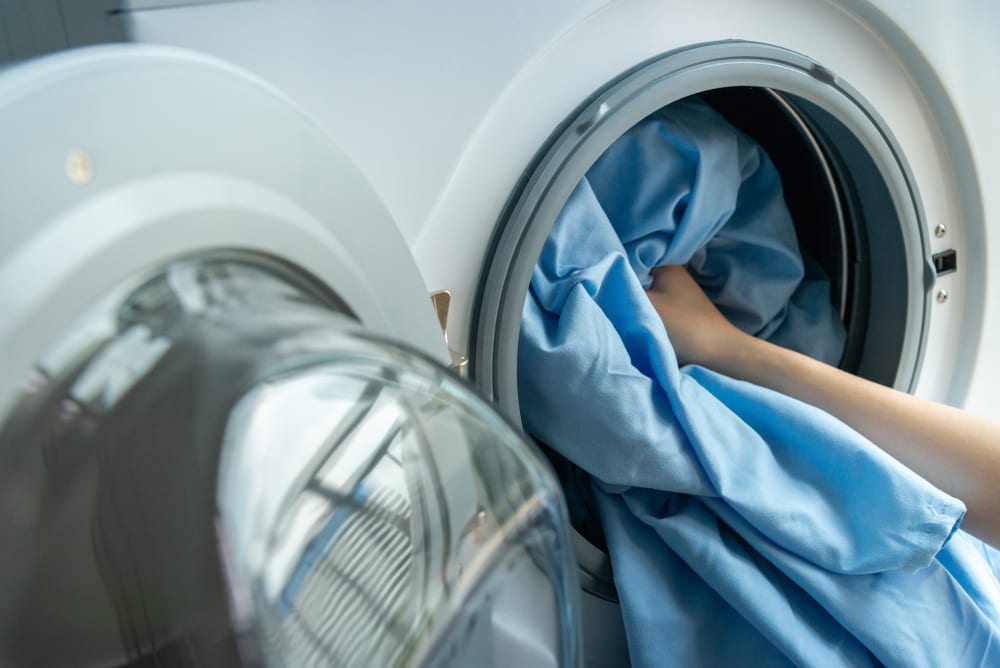
Features
How often should you actually wash your bed sheets?
5 years ago

Let’s be honest, washing your bed sheets is up there with the most annoying household chores.
Not only is it a pain to find space to dry your bed linen, but putting the covers back onto the duvet can be an incredibly frustrating task.
Hence why lots of people put off changing their bed sheets, but how often should you actually be changing them? The answer, we regret to tell you, is probably more often than you think.
“What many people do not know is that skin irritation, as well as acne breakouts, are often a result of unwashed bed linen,” explains says Ludovic Blanc, CEO of eco-friendly dry cleaners Blanc (blancliving.co). “When we sleep, we tend to sweat and shed dead skin cells, which can turn your duvet into a breeding ground for bacteria.”
He adds that unwashed bed sheets can also cause asthma to flare up, and cause a stuffy nose, while they are also more attractive to dust mites, making your bedroom a potentially unhealthy place to sleep.
For this reason, Blanc recommends washing and changing your bedsheets on a weekly basis.

“Making it a habit to clean your sheets once a week may sound like a tedious task at first, but considering the health benefits – not to mention the incomparable feeling of clean sheets – it is definitely worth getting into the habit,” says Blanc.
He also says there are simple ways to make the routine less demanding. “We recommend having three different sets so you can always have one to sleep in, one in the washing machine and one to keep stored in your drawers. If you are a parent, you know that having some extra bed linen to spare for night time emergencies is a necessity.”
What temperature should you wash your bedsheets at?
A 40ºC gentle cycle is enough for regular cleans, says Blanc, as washing your sheets with a too hot setting can damage the linen’s fibres.
“The choice of detergents is essential though, as every night your bed linen is in direct contact with your skin,” he adds. “I recommend eco-friendly laundry detergents, which are a natural and safe alternative to conventional ones. They do not contain any chemicals or additives and are better for your skin, your health and the planet.”
Robert Lancaster Gaye, founder of Tielle Love Luxury (tielleloveluxury.co.uk) says that you shouldn’t forget about cleaning your duvet either.
“It’s a good idea to launder your pillows and duvets twice a year, although for the most practical of reasons, due to the size of normal domestic washers and dryers, we recommend you leave the laundering of these items to professionals.”
Depending what material your duvet and pillow are made of, different care instructions apply, so make sure to take a good look at the label before you get started.









 Subscribe
Subscribe Follow Us
Follow Us Follow Us
Follow Us Follow Us
Follow Us Follow Us
Follow Us Follow Us
Follow Us











